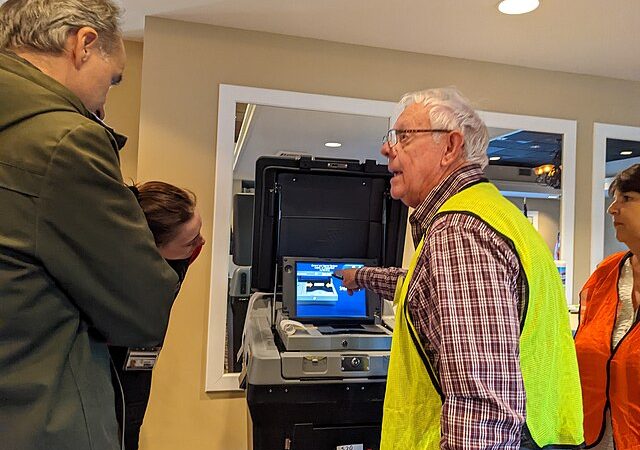Voters are well acquainted with what unfolds when liberal election lawyers overhaul election laws on the fly: chaos, confusion and delays that make for a grueling ballot-box experience.
Amid the 2020 election cycle, partisan lawyers such as Marc Elias used the COVID-19 pandemic to disingenuously force new voting rules on states and overhaul the election process to their political advantage. For these election attorneys, chicanery is par for the course.
Unless states get ahead of their efforts, Elias and his gang will manipulate the voting process again this year. There is no time to waste.
For upcoming elections, it will take more than traditional voting reforms to thwart partisan election meddling and bolster confidence in results. Honest Elections Project recently released its 2024 Safeguarding Our Elections Report that outlines key election reforms, boasting popular support that make it easier to vote and harder to cheat. Among the recommended voter integrity protections are photo ID requirements, clear rules for mail-in voting, the elimination of vote trafficking and regulation of voter registration groups.
But these reforms are not enough. States must also focus on staving off ever-evolving threats: ranked-choice voting (RCV) initiatives, private election funding and foreign influence in elections — to name just a few.
Dark money donors are pouring millions of dollars into a nationwide campaign to push measures such as California-style jungle primaries that require all candidates run against each other at the same time under RCV. Under the guise of building a more “representative” democracy, RCV undermines the democratic process by alienating voters, discarding ballots and putting otherwise unelectable candidates into office.
Left-wing elites love RCV because it gives them a disproportionate influence over election outcomes.
Five states have had the foresight to ban RCV already, and others are advancing bills right now to repeal or end ranked-choice voting. But that isn’t stopping the left.
When states ban RCV, the left simply pivots to ballot measures. This year alone, liberal megadonors are prepared to spend tens of millions on misleading campaigns to literally try to buy a new election system.
Many of the same leftists that fund RCV initiatives are also behind a refreshed “Zuck Bucks” program, once again aiming to push liberal money and politics into the neutral offices that run elections. In 2020, Americans saw firsthand just how toxic private election funding can be.
A left-wing group called the Center for Tech and Civic Life (CTCL) dolled out $350 million in grants using funds from Mark Zuckerberg. CTCL gave more money to areas that voted for Joe Biden, and coaxed government offices into acting like partisan get-out-the-vote campaigns.
The backlash was immediate, and today numerous states have banned CTCL’s private funding scheme. CTCL responded by shifting gears, implementing a new $80 million scheme called the U.S. Alliance for Election Excellence designed to evade those bans. Instead of getting money, offices can pay to join a membership program guided by a coalition of liberal groups.
They work overtime to push liberal politics into these offices through training programs, awards, and educational materials that reshape these offices from the inside. Only new laws can shut this program down.
Unfortunately, new threats to free and fair elections are also being orchestrated from abroad. One of the largest political donors, Swiss billionaire Hansjorg Wyss, exercises profound influence over American elections despite lacking U.S. citizenship.
As a foreign national, it’s illegal for Wyss to give money to political candidates, but he skirts the law by giving nearly half a billion dollars to left-wing causes, including those aimed at undermining election integrity. Wyss gave $265 million to the Arabella network, one of the largest dark-money networks in the country responsible for funding the 2020 “Zuck Buck” initiative and backing ballot measures to rewrite the laws of democracy.
Even with strong election laws in place to prevent political tampering, some offices still may not follow them. That’s why it’s crucial that every election office is routinely audited to ensure the law is being followed, problems are identified and resolved, and officials are held accountable for sloppiness or process violations when necessary. Uniform process audits would help build trust and confidence in election outcomes.
No election office will be safe and no vote secure if weak election laws are subject to ad hoc interpretation and selective enforcement this 2024 election year. But with a tailored, preemptive approach to election reform, states can thwart leftwing attacks on our right to vote and protect election transparency both now and later.
Election reform is a marathon, not a sprint.
Jason Snead on February 24, 2024

